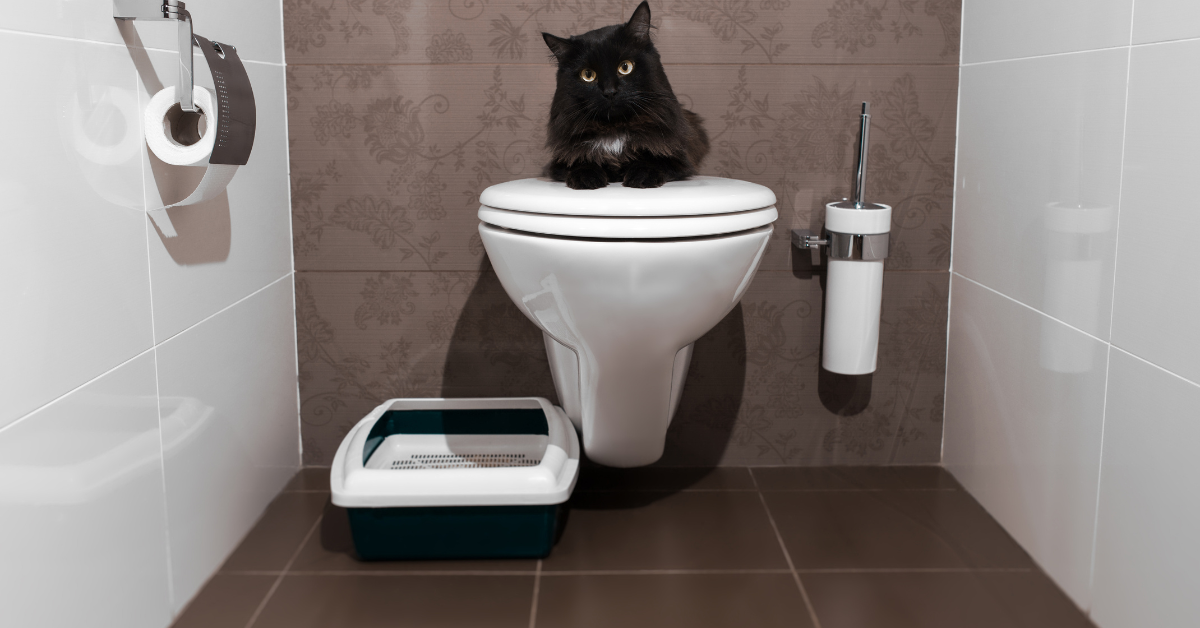Just about every person seems to have his or her own way of thinking when it comes to Don’t flush cat feces down the toilet.

Intro
As pet cat owners, it's important to bear in mind how we throw away our feline friends' waste. While it may seem hassle-free to flush cat poop down the bathroom, this technique can have detrimental effects for both the setting and human health.
Alternatives to Flushing
Thankfully, there are much safer and extra responsible means to dispose of feline poop. Think about the adhering to choices:
1. Scoop and Dispose in Trash
One of the most common technique of disposing of cat poop is to scoop it into a naturally degradable bag and toss it in the garbage. Make certain to make use of a committed clutter inside story and dispose of the waste promptly.
2. Use Biodegradable Litter
Opt for biodegradable cat trash made from materials such as corn or wheat. These trashes are environmentally friendly and can be safely gotten rid of in the garbage.
3. Bury in the Yard
If you have a lawn, think about burying cat waste in a marked location far from vegetable yards and water resources. Make certain to dig deep adequate to avoid contamination of groundwater.
4. Set Up a Pet Waste Disposal System
Purchase a family pet garbage disposal system especially created for cat waste. These systems use enzymes to break down the waste, lowering smell and ecological effect.
Health Risks
Along with ecological issues, flushing cat waste can also posture wellness dangers to human beings. Pet cat feces may include Toxoplasma gondii, a parasite that can create toxoplasmosis-- a possibly severe illness, specifically for expecting females and people with weakened immune systems.
Ecological Impact
Flushing cat poop presents dangerous microorganisms and parasites right into the water system, posturing a considerable risk to water environments. These contaminants can adversely impact aquatic life and compromise water top quality.
Final thought
Responsible animal possession extends past offering food and sanctuary-- it likewise entails appropriate waste management. By avoiding flushing feline poop down the bathroom and going with alternative disposal approaches, we can reduce our ecological footprint and secure human health.
Why You Should Never Flush Cat Poop Down the Toilet
A rose by any other name might smell as sweet, but not all poop is created equal. Toilets, and our sewage systems, are designed for human excrement, not animal waste. It might seem like it couldn’t hurt to toss cat feces into the loo, but it’s not a good idea to flush cat poop in the toilet.
First and foremost, assuming your cat uses a litter box, any waste is going to have litter on it. And even the smallest amount of litter can wreak havoc on plumbing.
Over time, small amounts build up, filling up your septic system. Most litter sold today is clumping; it is made from a type of clay that hardens when it gets wet. Ever tried to scrape old clumps from the bottom of a litter box? You know just how cement-hard it can get!
Now imagine just a small clump of that stuck in your pipes. A simple de-clogger like Drano isn’t going to cut it. And that means it’s going to cost you big time to fix it.
Parasitic Contamination
Believe it or not, your healthy kitty may be harboring a nasty parasite. Only cats excrete Toxoplasma in their feces. Yet it rarely causes serious health issues in the cats that are infected. Most people will be fine too if infected. Only pregnant women and people with compromised immune systems are at risk. (If you’ve ever heard how women who are expecting are excused from litter cleaning duty, Toxoplasma is why.)
But other animals may have a problem if infected with the parasite. And human water treatment systems aren’t designed to handle it. As a result, the systems don’t remove the parasite before discharging wastewater into local waterways. Fish, shellfish, and other marine life — otters in particular — are susceptible to toxoplasma. If exposed, most will end up with brain damage and many will die.
Depending on the species of fish, they may end up on someone’s fish hook and, ultimately on someone’s dinner plate. If that someone has a chronic illness, they’re at risk.
Skip the Toilet Training
We know there are folks out there who like to toilet train their cats. And we give them props, it takes a lot of work. But thanks to the toxoplasma, it’s not a good idea.

We were made aware of that write-up on How to Dispose of Cat Poop and Litter Without Plastic Bags through someone on our other web address. Sharing is nice. Who knows, you will be doing someone a favor. Thanks a lot for your time spent reading it.
Go Company